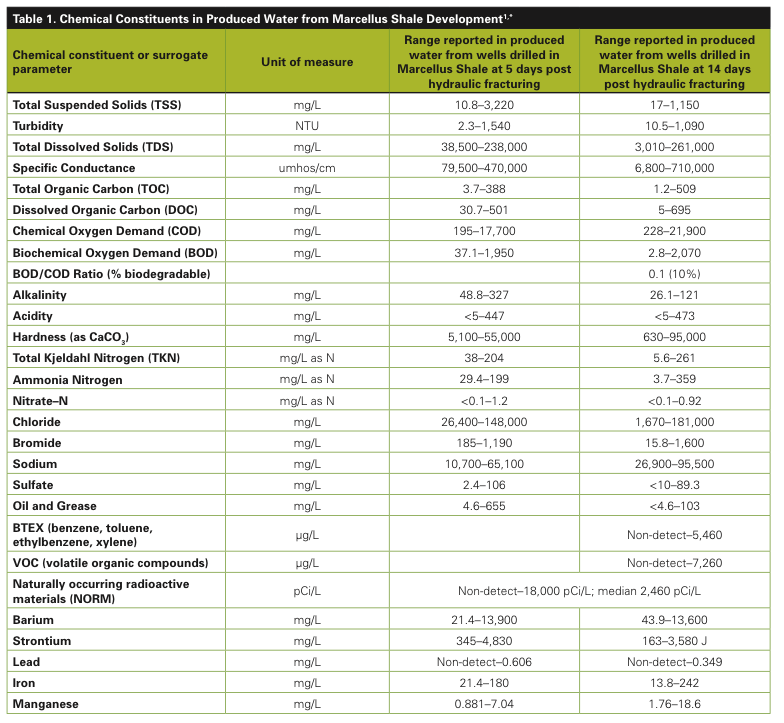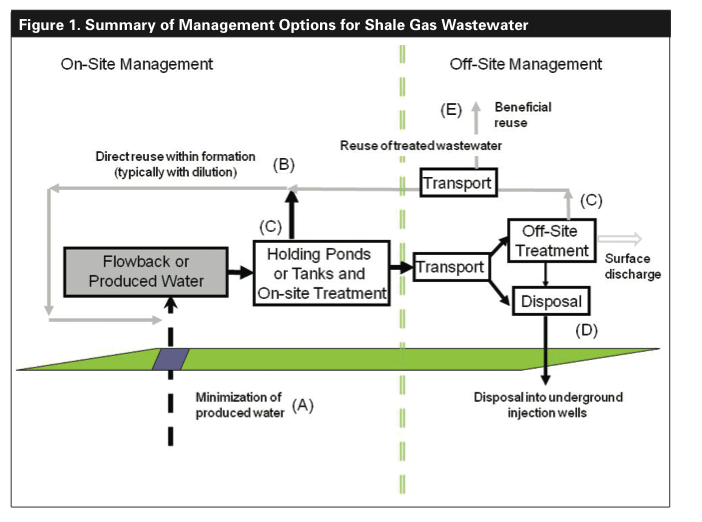NATIONAL RESOURCES DEFENSE COUNCIL
Executive Summary
This paper analyzes the problem of wastewater generated from the hydraulic fracturing process of producing natural gas, particularly with regard to production in the Marcellus Shale. It shows that, while hydraulic fracturing (often called “hydrofracking” or “fracking”) generates massive amounts of polluted wastewater that threaten the health of our drinking water supplies, rivers, streams, and groundwater, federal and state regulations have not kept up with the dramatic growth in the practice and must be significantly strengthened to reduce the risks of fracking throughout the Marcellus region and elsewhere.
Hydrofracking and the production of natural gas from fracked wells yield by-products that must be managed carefully to avoid significant harms to human health and the environment. These wastewater by-products are known as “flowback” (fracturing fluid injected into a gas well that returns to the surface when drilling pressure is released) and “produced water” (all wastewater emerging from the well after production begins, much of which is salty water contained within the shale formation).
Both types of wastewater contain potentially harmful pollutants, including salts, organic hydrocarbons (sometimes referred to simply as oil and grease), inorganic and organic additives, and naturally occurring radioactive material (NORM). These pollutants can be dangerous if they are released into the environment or if people are exposed to them. They can be toxic to humans and aquatic life, radioactive, or corrosive. They can damage ecosystem health by depleting oxygen or causing algal blooms, or they can interact with disinfectants at drinking water plants to form cancer-causing chemicals.
Read full report (PDF) here: In Fracking’s Wake
About the National Resources Defense Council (NRDC)
www.nrdc.org
“NRDC (Natural Resources Defense Council) is a national nonprofit environmental organization with more than 1.3 million members and online activists. Since 1970, our lawyers, scientists, and other environmental specialists have worked to protect the world’s natural resources, public health, and the environment. NRDC has offices in New York City, Washington, D.C., Los Angeles, San Francisco, Chicago, Montana, and Beijing.”
Tags: Fracking, Hydrofracking, Marcellus Shale, National Resources Defense Council, NRDC, Wastewater








 RSS Feed
RSS Feed